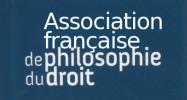Paper's abstract
R. C.
Van Caenegem,
The Trial from an Historico-Comparative Point of View
One could discuss at length on the relative weight of legislation, doctrine and case law as sources for the knowledge of ancient law. However in order to analyse more specifically the role of judges, one must face a considerable amount of archives, this is why the author starts by an inventory of fixtures and of the various undertakings to peruse the funds of the great courts of justice in Europe before tackling procedure. From the quick, public and oral character of the primitive procedure, the attention is drawn towards the civil and criminal jury through the English experience in which it represented the sole place where the vox populi was still heard in judicial proceedings. From this point, the author moves on to the questions of proof and to the force of precedent, while at the same time recalling the present evolution in Great Britain. But the procedure whose significance must be stressed remains the procedure of appeal which can be seen either as the product of the schools as an element in the evolution of legal science, or as an instrument for social control: in this case, the appeal seems to express the balance of power between States, or with the Church, or between central governments and cities. Here again, the interest rises from the comparison between the various experiments in European monarchies.
Key Words : trial, history, jury
t. 39, 1994 : p. 125-137
